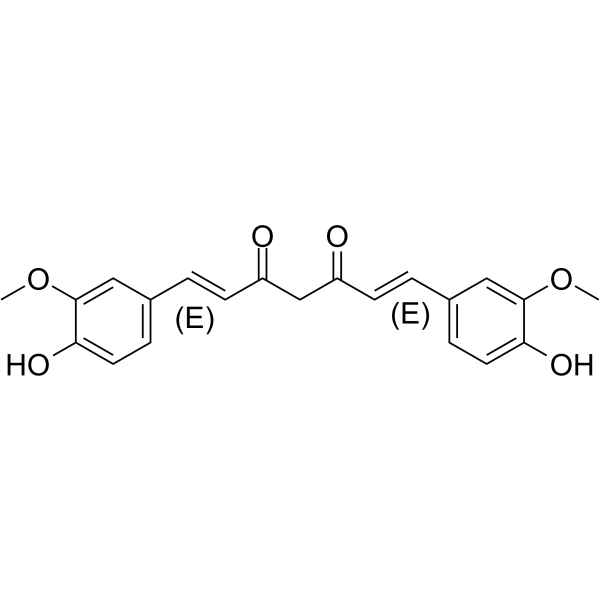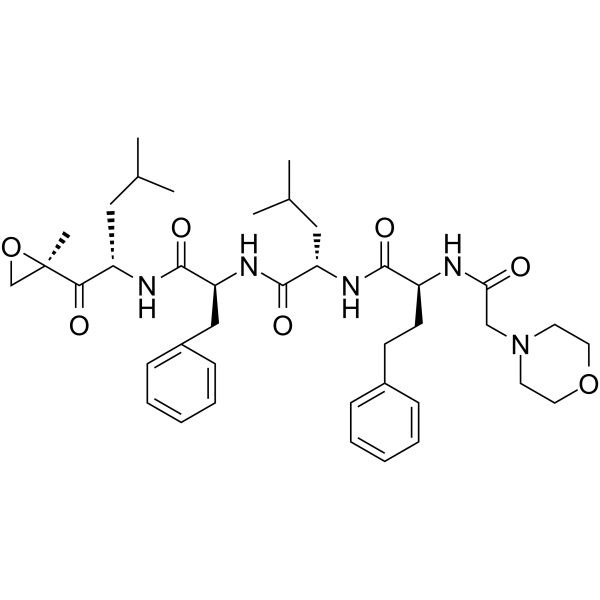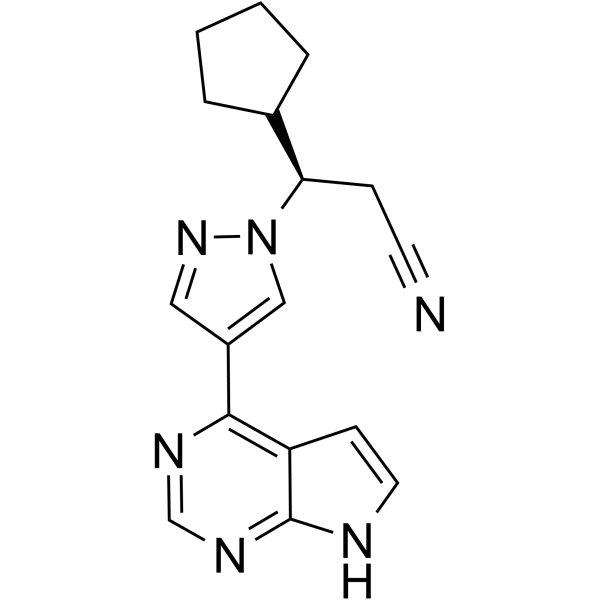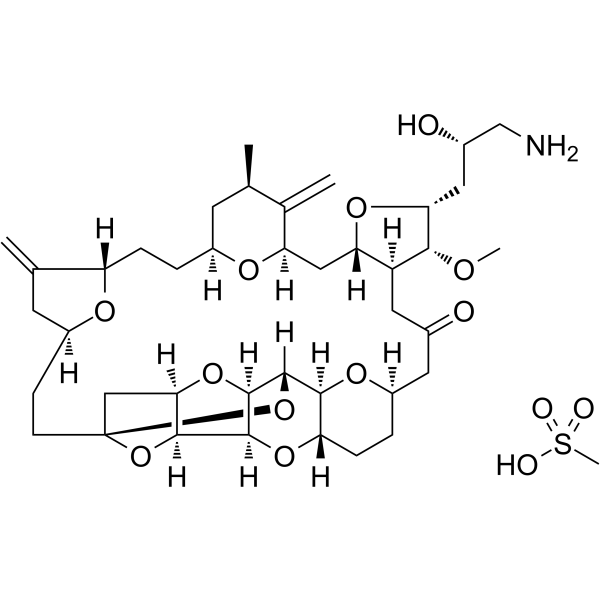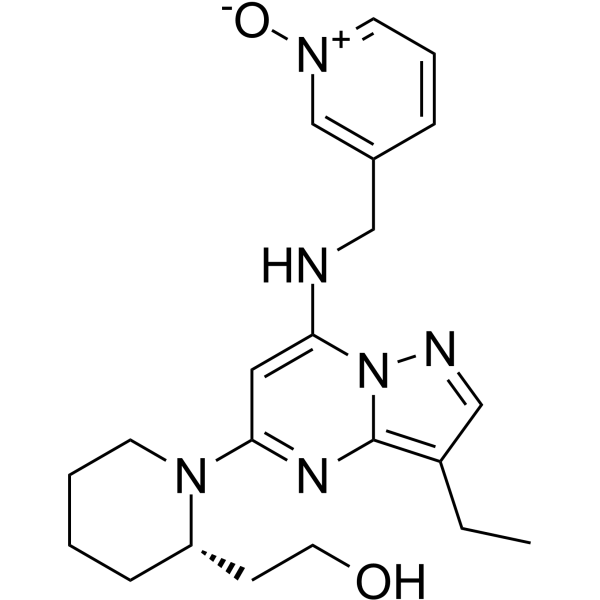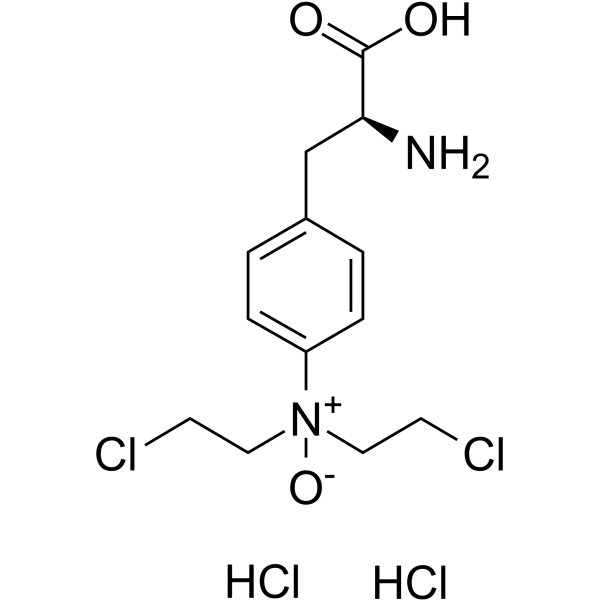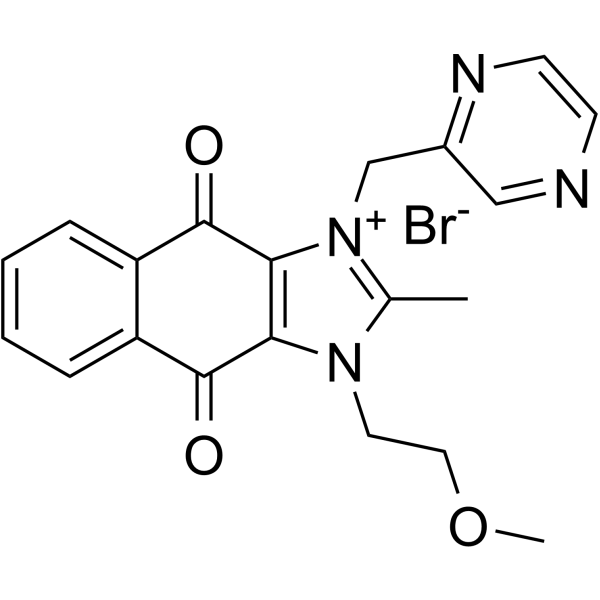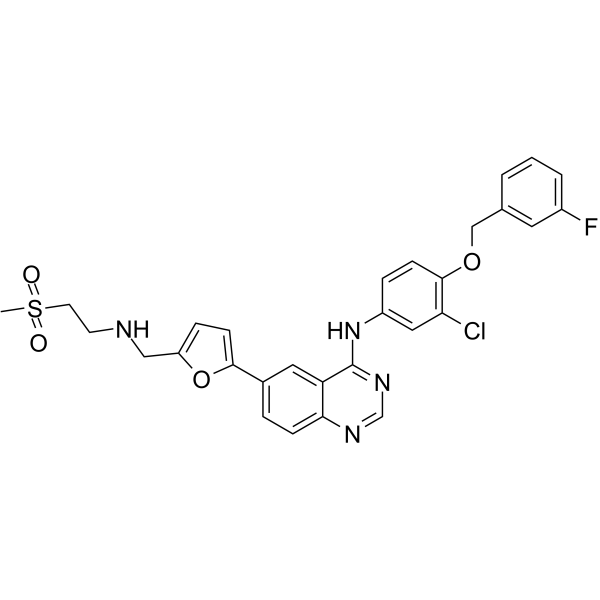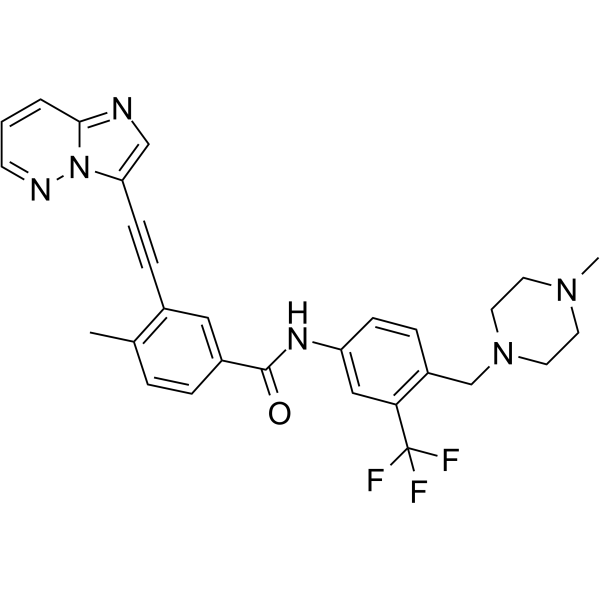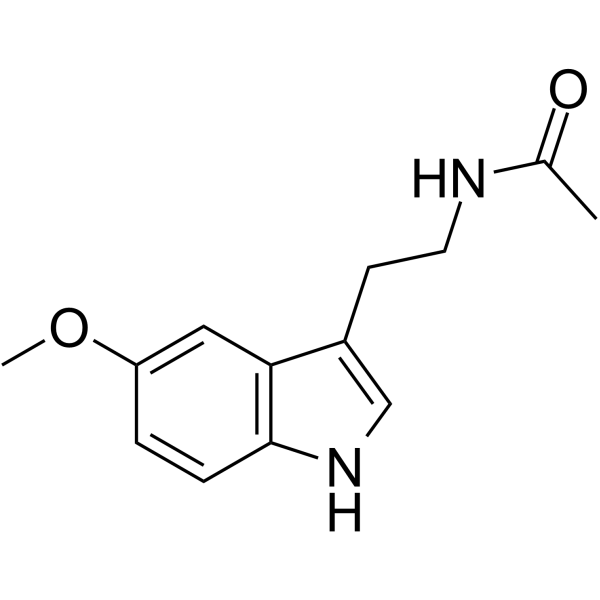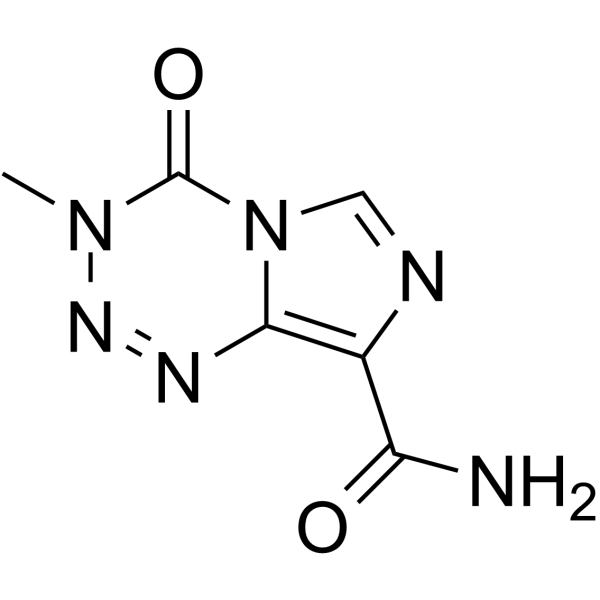|
BP22526
|
Curcumin
|
|
|
|
|
Curcumin (Diferuloylmethane), a natural phenolic compound, is a p300/CREB-binding protein-specific inhibitor of acetyltransferase, represses the acetylation of histone/nonhistone proteins and histone acetyltransferase-dependent chromatin transcription. Curcumin shows inhibitory effects on NF-κB and MAPKs, and has diverse pharmacologic effects including anti-inflammatory, antioxidant, antiproliferative and antiangiogenic activities. Curcumin induces stabilization of Nrf2 protein through Keap1 cysteine modification.
|
|
BP22534
|
Carfilzomib
|
|
|
|
|
Carfilzomib (PR-171) is an irreversible proteasome inhibitor with an IC50 of 5 nM in ANBL-6 and RPMI 8226 cells.
|
|
BP22503
|
Ruxolitinib
|
|
|
|
|
Ruxolitinib (INCB18424) is a potent and selective JAK1/2 inhibitor with IC50s of 3.3 nM and 2.8 nM in cell-free assays, and has 130-fold selectivity for JAK1/2 over JAK3. Ruxolitinib induces autophagy and kills tumor cells through toxic mitophagy.
|
|
BP22552
|
Eribulin mesylate
|
|
|
|
|
Eribulin mesylate (E7389 mesylate) is a microtubule targeting agent that is used for the research of metastatic breast cancer. Eribulin mesylate inhibits the proliferation of cancer cells by binding microtubule proteins and microtubules.
|
|
BP22535
|
Dinaciclib
|
|
|
|
|
Dinaciclib (SCH 727965) is a potent inhibitor of CDK, with IC50s of 1 nM, 1 nM, 3 nM, and 4 nM for CDK2, CDK5, CDK1, and CDK9, respectively.
|
|
BP22540
|
PX-478
|
|
|
|
|
PX-478 is an orally active HIF-1α inhibitor with potent antitumor activities. PX-478 can cross the blood-brain barrier.
|
|
BP22555
|
Sepantronium bromide
|
|
|
|
|
Sepantronium bromide (YM-155) is a survivin inhibitor with an IC50 of 0.54 nM.
|
|
BP22523
|
Thapsigargin
|
|
|
|
|
Thapsigargin, an endoplasmic reticulum (ER) stress inducer, is an inhibitor of microsomal Ca2+-ATPase. Thapsigargin efficiently inhibits coronavirus (HCoV-229E, MERS-CoV, SARS-CoV-2) replication in different cell types.
|
|
|
Lapatinib
|
|
|
|
|
Lapatinib (GW-572016, GSK572016, GW2016) is a potent inhibitor of EGFR and ErbB2 with IC50s of 10.2 and 9.8 nM, respectively, in cell-free assays. lapatinib induces ferroptosis and cellular autophagy.
|
|
|
Ponatinib
|
|
|
|
|
Ponatinib (AP24534) is a novel and potent multi-target inhibitor that acts on Abl, PDGFRα, VEGFR2, FGFR1 and Src in cell-free assays with IC50s of 0.37 nM, 1.1 nM, 1.5 nM, 2.2 nM and 5.4 nM, respectively. Ponatinib inhibits autophagy.
|
|
BP22520
|
Melatonin
|
|
|
|
|
Melatonin is a hormone made by the pineal gland that can activates melatonin receptor. Melatonin plays a role in sleep and possesses important antioxidative and anti-inflammatory properties. Melatonin is a novel selective ATF-6 inhibitor and induces human hepatoma cell apoptosis through COX-2 downregulation. Melatonin attenuates palmitic acid-induced mouse granulosa cells apoptosis via endoplasmic reticulum stress.
|
|
BP22491
|
Temozolomide
|
|
|
|
|
Temozolomide (NSC 362856) is an oral active DNA alkylating agent that crosses the blood-brain barrier. Temozolomide is also a proautophagic and proapoptotic agent. Temozolomide is effective against tumor cells that are characterized by low levels of O6-alkylguanine DNA alkyltransferase (OGAT) and a functional mismatch repair system. Temozolomide has antitumor and antiangiogenic effects.
|
